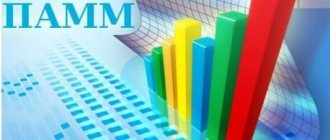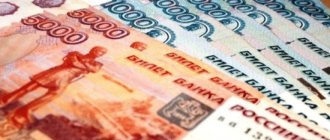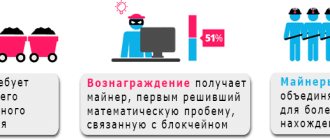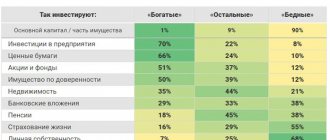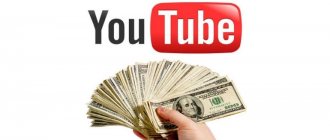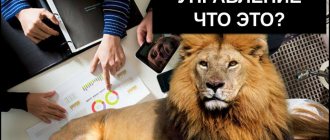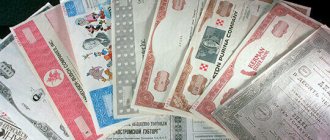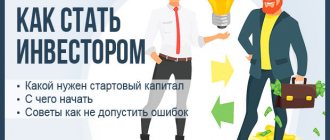There are dollars (a lot or not a lot). 10 thousand, 1000 or just a couple of hundred. So that they do not lie like a dead weight and do not burn your eyes (arms, legs, tail), you need to hide them from yourself. So that there is no temptation to spend your hard earned money. So you need to invest it somewhere. Ideally, it is reliable and generates income.
The question is - where?
The answer is below. We read, draw conclusions, choose the appropriate method, invest dollars.
We offer something of our own. It will be interesting to know additional options for investing American currency.
Currency deposits
Almost all banks offer the service of opening a foreign currency account. With a yield of 1-2% per annum. You can start from a few hundred dollars.
Deposits are opened for a period from several months to 2-3 years. Naturally, the interest rate depends on the deposit amount and the deposit period.
Pros:
- fixed income;
- minimum entry amount;
- reliability (if you choose large banks).
Minuses:
- Low profit. Given the average dollar inflation of 1.6% per annum, investors earn virtually nothing in nominal returns.
- It is impossible to withdraw part or all of the capital from the deposit ahead of schedule without losses. All accrued interest will be lost. And you will receive only the body of the deposit. The problem can be solved by opening short term deposits (for 3-6 months). But in this case we lose in annual profitability. A deposit opened for 1-2 years brings in 2 times more percentage.
As an alternative, we use the deposit ladder. Opening several foreign currency deposits at the same time for different periods. For 2 years, one and a half, a year, six months and 3 months. After the 3-month deposit expires, we open a 2-year deposit with this money. After another 3 months, the six-month deposit ends - we open the deposit again, but with a long term. And so on.
Where can I find banks with high interest rates on foreign currency deposits?
The search engine will help you. You can start, for example, with the Banki.ru portal - they have a service for selecting bank offers depending on your conditions (amount, term and currency of the bank).
What are deposits in euros?
A deposit in any currency is funds deposited by a depositor in a bank or other financial institution for storage and growth. Investments in euros are quite popular among Russian residents, even with today's lower interest rates, which have fallen below 1%.
And only because the euro is stable in its exchange rate, so keeping savings in a currency that is steadily growing is very profitable. Typically, the number of deposits in euros grows rapidly when there is instability in economic markets, both internal and external.
It is believed that if the ruble exchange rate is shaky, then foreign currency is more stable. It turns out that the main purpose of saving in euros is to protect capital from inflation.
Important: experts advise taking into account the political situation when choosing a currency for a deposit.
Is it worth opening a deposit in euros?
Advantages of these deposits
The advantages of deposits in European currency outweigh the disadvantages:
- First of all, this is stability in relation to the ruble, as well as the strict growth of the euro currency, which contributes to an increase in capital;
- Investing in euros into one, or better yet, several accounts completely diversifies the financial risks of investments without loss of profitability;
- A bank client, having opened such a deposit for a long time, fully protects his funds from inflation;
- These deposits are very convenient for people who make most of their purchases in euros;
- Such a deposit can be opened in almost any bank from 100 euros, making an investment in rubles with subsequent conversion;
- For deposits in euros, almost all acceptable functions are applicable - replenishment, withdrawal, capitalization of interest, monthly transfer of interest to a separate account, etc.;
- All deposits in foreign currency are insured by the state;
- Such an investment earns a certain percentage;
- A deposit can be opened in the name of another person, bequeathed, or donated;
- Anyone can open a deposit.
Is it worth making deposits in microfinance organizations and what the risks may be, read the link.
Are there any disadvantages
There are significantly fewer disadvantages:
- The main one is the extremely low interest rate compared to a ruble deposit. Here financiers are in a hurry to reassure by comparing with foreign countries that, they say, interest rates on deposits there are not only lower, but also in the red;
- Banks offer many deposits in foreign currency with limited functions, and early withdrawal significantly reduces the percentage of profit.
Eurobonds
Purchase of Eurobonds of Russian companies denominated in dollars.
The yield is about 4-6% per annum. Payments occur 2 times a year. This money can be immediately used at your discretion: spent or reinvested.
You can buy Eurobonds on the stock exchange. Through an intermediary - a broker. To do this, you will need to open a brokerage account. Deposit money and... actually buy Eurobonds.
What will we get by buying bonds?
Fixed yield for the entire period of circulation of the bond. That is, if you buy Gazprom Eurobonds with a maturity date in 10 years, you will receive coupon income for a decade.
A distinctive feature of Eurobonds (like all bonds) from deposits is the preservation of accrued (but not paid) interest upon early sale of securities.
We can invest in Eurobonds for literally a week. And you are guaranteed to receive your percentage of profit in the form of accumulated coupon income (ACI), in proportion to the annual yield.
I recommend: How Eurobonds work - in simple words
For example, we bought Sberbank Eurobonds with an annual yield of 6%. If you held it for 1 month and sold it, you will receive 0.5% on top of the cost. In a month +1% and so on.
Yes, even in one day some imperceptible (but it is there) share in the price of the bond will drop. In our case, 6% / 365 days or 0.016%.
And now the disadvantages and pitfalls.
The cost of Eurobonds starts from 1 thousand dollars (but there are few of them). There are papers worth 10 thousand dollars. But most go for $100-200 thousand.
The price of a bond is not a fixed value. Although Eurobonds resemble bank deposits (open a deposit, a year later you take all the money in full + interest), there is a significant difference.
This is the market price of the bond.
It can change over time: increase or decrease. You will receive coupon income consistently. But if at one point you want to sell Eurobonds, you may be surprised to find that the paper you bought a year ago no longer costs 1 thousand dollars, but $950 (although it may be the other way around, it will rise in price to $1050).
Why is this happening?
A bond has 2 prices - nominal and real.
Let's say a company has released 15-year securities on the market with a yield of 10% per annum. The face value of the bond is 1 thousand dollars.
If you buy them, you will receive 10% per year or 100 bucks for fifteen years. And after 15 years, you will get back the original thousand invested.
Now imagine after 2 years, another person, let’s call him Vasya, also wanted to buy such bonds. Vasya turns to you with a request to sell them to him.
You think: why should I sell them? They bring me 10% profit per year. Despite the fact that banks only give 2%.
Then Vasya offers you not 1 thousand, but one hundred thousand for them. Then one thousand two hundred. In the end, you negotiated for $1,300. This will be the market price of the bond.
Over two years you received 200 bucks in coupon money. Plus immediately + $300 on top. In total, for the thousand dollars invested, we earned 50% profit in 2 years. Not bad.
Why does Vasya need this? Even taking into account the higher price of the bond, its annual yield will be about 8%. Which is also very good. And the annual income will remain unchanged. Still the same 100 dollars a year.
The only negative is that at the end of the 15-year circulation period of the paper, Vasya will receive only 1 thousand rubles (instead of the 1,300 given to you). Over the period of ownership (13 years) he will receive $1,300 in interest. And the net result will be $1,000 or 78% profit.
Only in the market the price changes constantly. Various “Vasyas” always appear, selling and buying securities.
Another existing problem with buying individual securities is the risks. The risk that the issuer (the company that issued the bond) may not pay its debts.
You can partially reduce possible negative consequences by choosing the most reliable securities. Plus, if possible, diversify your portfolio by purchasing Eurobonds from different companies. But in this case, the amount of investment (taking into account the high cost of bonds) increases multiple times.
Diversified portfolio
Although exchange-traded funds are a convenient investment tool, investing in them does not guarantee good returns. You need to understand that the market can value any asset differently, be it stocks, bonds or gold. Under certain circumstances, their price may decline, which will inevitably lead to a decrease in the value of those ETFs that decide to invest in these assets.
Exchange-traded funds are nothing more than an investment vehicle. For any investor, the main thing is to correctly compile your portfolio. With the right approach, you can earn good money and achieve impressive results.
First of all, you need to take care of diversifying your portfolio: it should include various assets, shares of companies operating in different areas of business. You should not limit yourself to any one region, for example Russia, the USA or EU countries. Diversified assets will react differently to the current market situation.
The ideal option is when, as the value of one asset decreases, the value of another increases. High portfolio stability allows you to avoid significant losses in unforeseen circumstances. This strategy gives good results regardless of any changes in market conditions.
The second important point is the periodic restoration of the original ratio of assets in the portfolio. For example, if some shares have risen in price over the past year, you need to sell some of them and buy additional assets that have fallen in price. The bottom line is that all asset classes should have an initial allocation to an investor's portfolio.
This approach will help avoid increasing risks that could lead to a decrease in the value of the portfolio. On the other hand, the well-known rule of investors will be observed: “sell high, buy low.”
Let's give an example of the return on a notional portfolio divided equally between four asset classes.
- 25% - blocks of shares consisting on a parity basis of shares of Russian companies (12.5%) and shares of American companies (12.5%);
- 25% - bonds. Foreign Bond Fund;
- 25% - real estate. American Real Estate Fund, which is engaged in the purchase/sale/rent of real estate in the USA;
- 25% - precious metals. Gold Fund.
So, let’s give an estimate of the profitability of such a portfolio, without taking into account commissions for buying and selling instruments, as well as taxes. The actual investment result will be slightly lower than the interest rates received.
It should be noted that at the end of each year the initial ratio of assets was restored. If an asset increased in price over the year, it was partially sold, and the funds received were used to purchase an asset that had fallen in price. Such actions made it possible to achieve the initial balance: at the beginning of each year, the share of each asset in the portfolio was 25%. As a result, for the period from 1998 to 2014, an average annual ruble return of 25.57% was obtained.
Here are some other indicators for comparison:
- Deposit in US dollars – 17.43% (calculated at an annual rate of 2.9%).
- Inflation in the Russian Federation – 16.06%
- Investments in the US dollar – 14.12%.
The yield obtained clearly shows that the most profitable investment option is a portfolio compiled using the asset allocation method (abroad it is called Asset Allocation). It was significantly ahead of the inflation rate and foreign currency deposit. As for simply investing in US dollars, this option, as expected, turned out to be the worst.
It is important that this method of compiling an investment portfolio can be adopted by anyone. To do this, you don’t have to be a financial market guru, although certain knowledge will certainly come in handy. The effect of this method is achieved with long-term investment (10 years or more). But portfolio management itself takes very little time. It is necessary to periodically, at least once a year, carry out financial transactions to restore the original ratio of assets in the portfolio, and this is where the mandatory program of action ends.
It is worth once again focusing on portfolio diversification. It should include shares of companies from different countries, bonds, etc. And exchange-traded funds will be happy to help the investor with this.
The presented example of an investment portfolio is not a standard investment. If you compose asset classes according to a different proportion, then the profitability will change, perhaps even for the better. The actual portfolio must be compiled individually in each specific case. At the same time, a well-thought-out investment strategy will be much more effective than simply storing funds in dollars or placing a foreign currency deposit.
- Related Posts
- ETF - how to reduce risks with small investments and significantly increase portfolio diversification
- Advantages and Disadvantages of ETFs
- Choosing the best ETF: which funds should you invest in?
Stock
In our case, shares of American companies denominated in dollars.
Where can I buy?
Or through Russian brokers providing access to US stock markets. Or directly through American brokers.
In the second case, the minimum entry amount will be 10 thousand dollars or more.
Purchases are available through domestic brokers, but you will have to take into account very high commissions (literally multiples of the usual level of expenses for transactions with Russian securities).
Expected potential return……unknown. You can get several tens of percent profit per year. And vice versa. Lose the Nth amount as a result of a decrease in quotes.
The main problem is the correct choice of papers. And for this you need to have at least basic knowledge in fundamental analysis. So that it does not happen that after purchasing a stock that has been growing for several years, its value begins to decline.
But even knowledge and careful selection of papers do not guarantee a positive result.
The problem can be partially solved by diversification, that is, the simultaneous purchase of several shares of different companies. The loss from the fall of one or two securities will be compensated by the growth of others.
The minimum investment period should be 5-8 years. This, of course, does not mean that if you buy shares for 2-3 years, you will not earn anything. But it is important to understand that in such short periods, due to high volatility, there is a high risk of prices falling.
In the longer term, you can count on 8-10% annual returns.
How to invest in currency
If you just want to invest in currency, that is, buy at a low rate and sell at a high rate, you should do this on the stock exchange. To do this you just need to take three simple steps:
- Open an account with a reliable broker. Here at ITI Capital, you can do this remotely
- Top up your account. This can be done for free via bank transfer.
- Buy dollars and euros on the foreign exchange market. You will be pleasantly surprised that the exchange rate of any currency on the exchange is much more favorable than what you see in exchange offices or banks. It's like buying things you like at wholesale prices.
You can buy any amount in a currency convenient for you and not withdraw it. If you need to carry out any transaction in the future, you will be ready for it: the money will already be in the account, any operation with it will be easy and quick. But what to do next with this money?
You can buy Eurobonds that are denominated in US dollars.
Dividend shares
If companies pay dividends to their shareholders, then in addition to the growth of quotes, we have additional income. Real money.
Unlike Russian companies, which usually pay dividends once a year (less often 2 times, some even pay 4 times a year), most American companies pay dividends to shareholders consistently once a quarter.
The average dividend yield is just under 2%. You can find papers with higher payouts - 3-4%.
Just like stock prices, dividend levels rise over time. There are companies that pay dividends, and most importantly, increase them every year (dividend aristocrats) for 10-20 and even 50 years!!!
And again the problem comes down to the choice of papers. Although if you plan to make long-term investments (for many, many years), then perhaps such a dividend strategy will be just right.
I bought myself a package of various dividend shares. And it doesn’t matter (at least not very critically) whether the price of securities rose or fell. You are guaranteed to receive dividend income in foreign currency. And the growth in share price over time will be an additional bonus.
For the risky and desperate
In an ideal world I wish this section didn't exist. Probably because I'm too old a conservative investor.
▍7. FOREX
I wrote expert texts about finance for several publications and companies from the top 5 financial market of Russia and always in the technical specifications for the text there was a request “just not Forex”, “don’t mention Forex”, etc.
On the one hand, technical specifications are always written by unhappy marketers who fear for the company’s reputation and don’t go into much detail, on the other hand, I perfectly understand the reasons for such a common clause in assignments. But since RUVDS does not write any technical specifications and generally allows authors to speak out quite democratically, I will write about FOREX as it is and why this happened. “Forex (from English - FOReign EXchange - “foreign exchange”) is a market for international currency exchange based on freely formed (without restrictions) quotes (offered prices) based on demand for currency and, accordingly, supply. Market participants are various types of banks (central banks, commercial), brokers and dealers, insurance and pension organizations and others (including private investors/traders).” This is the classic, precise and comprehensive definition of FOREX that can be found on the Internet or in a textbook. In human terms, this is an over-the-counter market without a physical center and trading platform, where banks, companies, financial agents and even private investors trade currencies.
Trading on FOREX is banal and boring: a trader (that is, you or any other person) works with charts of traded currency pairs in the same absolutely legal and wonderful MetaTrader, closes transactions, fixes profit or loss. 1 lot for the Forex market is equal to 100 thousand units of the base currency. The minimum lot size that can be traded on Forex is 0.1 lot or 10 thousand units of the base currency, however, your broker may have its own conditions and often you can start trading with $1 or $10. Since no one is interested in such amounts, the broker provides you with leverage (leverage) and you with your $10 turn into a dude with $10,000, for example (leverage 1:1000). If the deal is successful, you will make good money, and the broker will receive a commission; if not, you will lose your $10 asset (or whatever you have).
Such a simple scheme, weak regulation and the over-the-counter nature of trading could not help but attract scammers of all stripes. Among FOREX brokers and dealers, most are fly-by-night companies, home-grown financial consultants. networkers and other evil spirits. FOREX itself is more like a gambling casino, but with the participation of this entire contingent, it’s just a den of robbers. Schemes of involvement in pyramid schemes and stories with high leverage are very advanced; even an experienced investor can get caught.
Therefore, my advice: it is better to avoid FOREX, but if you decide to play with leverage (and I emphasize - this is not a smart investment, but almost a gamble), choose certified brokers and dealers who have been in the market for more than 10 years. They have at least passed all the legislative filters and learned to work in the legal field (well, almost).
▍8. PAMM accounts
At this point, you can just go to point 9 and dream, because I myself don’t trust PAMM accounts, I don’t like them and I would never contact them myself.
However, they are worth mentioning, if only so that you, my novice investor friend, when you hear the word “PAMM accounts,” will remember this article and move on. Past. So, PAMM accounts are accounts that are created by a broker, bringing together you, other investors and a certain manager. The manager, an experienced investor and analyst (in a good situation), carefully makes transactions with currency, and you all follow his example: he sold 50% of his assets and you, he bought yuan for everything and you (more precisely, not you, but most often an automated trading terminal)… etc. For successful “moves” he receives a commission and makes money from it. Naturally, this is a place for various adventures and dishonest moves, although at first glance it seems like a sacred task for the manager to trade carefully and profitably. I won’t write about the pros and cons, just be careful here and don’t get into trouble. Although, if you wish, you can find many rave reviews about this trading strategy in the foreign exchange market. Until the first time.
ETF on the Moscow Exchange
The main problem of choosing the right or wrong choice of individual securities (stocks or bonds) for investment is solved quite simply: by purchasing shares of ETF funds for these asset classes.
In simple terms, an ETF contains dozens or hundreds of different stocks or bonds. By purchasing a fund share, you receive a piece of this pie in proportion to the invested funds.
Recommend: What are the benefits of ETFs?
Each ETF has a specific focus. For example, it invests only in US, German or Chinese stocks. By purchasing an ETF for the German stock market, you will receive dozens of the largest German companies (Adidas, Puma, BMW) in one package for little money.
If you buy an ETF for American stocks, you will become a co-owner of more than six hundred companies (Google, Amazon, Facebook, Tesla, Coca-Cola).
The same applies to Eurobonds. You can buy one ETF fund, which already includes most of the largest companies in Russia.
How much does it cost? You will be surprised - inexpensive. Within $50-100 per ETF share. Compare this with the price of one Eurobond of several tens of thousands of dollars!!!
Minuses:
As always, this is a minimum level of investment of several years.
And..... Russian ETF funds do not pay dividends on shares and coupon income on bonds to their owners. All cash flow is reinvested. Making the cost of one share more expensive for the income received.
On the one hand, this is even good. Tax payment costs are reduced. On the other hand, there will be no source of income in the form of constant payments in real money.
Owning ETFs is not free. You will be asked for a commission of an average of 0.9% per year. From the cost of purchased ETF shares.
There are only a little more than 10 ETF funds from Finex on the Moscow Exchange.
How much can you earn?
I think the answer “unknown” will not suit you.
But still. Depends on the investment period. For example, over the past few years the American market has grown by 12-15% per year. But this does not mean that this will always continue.
In a year we may see continued growth or decline. Easily.
Again, looking at history, the average annual return of the American market is about 6-8% per year.
Closing a deposit
Before closing a deposit, you need to re-read the terms of the agreement, the procedure for calculating interest, and look at the exact date of termination of the agreement - all this data can significantly affect the decision to close.
The following steps should be followed:
- If the amount is large, you need to call the bank in advance and inform about the date of your visit;
- Since the deposit is closed automatically upon expiration and is also extended under certain conditions, and the client has no desire to cooperate further, the bank should also be informed about this in advance;
- It is advisable to go to the branch where the contract was concluded;
- You need to take your passport and contract with you;
- In case of early termination of the agreement, a special form must be filled out.
Withdrawals
If the deposit is closed according to the schedule, after all the necessary closing procedures have been completed, the money can be received at the bank’s cash desk or by transfer to a plastic card.
Euro deposit rates.
If the client withdraws money ahead of schedule, the funds can be received in the same way only after submitting the appropriate application and its approval by the bank commission.
The Bank of Moscow offers mortgages to everyone on favorable terms, details here.
ETFs from foreign brokers
The meaning is similar to buying an ETF on the Moscow Exchange.
But there are nuances:
- Entrance prices start at ten thousand dollars.
- The choice of ETFs is simply huge. Several hundred different funds.
- The commission for owning funds is tens of times lower than that of ETFs from Finex. For example, an S&P 500 index fund charges 0.04% management fee. Instead of 0.9% from Finex.
- All US ETFs pay dividends or bond coupons to owners.
- There are real estate funds (Reit) that are not available in Russia. With a yield of 5-8% per annum. Naturally in dollars. You can even find it with a monthly payment.
Shares of European companies
If for some reason you do not want to buy an ETF, but hope to independently select and purchase shares, then you can invest euros in shares of European companies.
I’m not your advisor about which stocks to select; everything will depend on your trading strategy, financial capabilities and willingness to accept risks. Selecting specific shares of European companies is an art and the topic of at least a dozen articles.
Therefore, they will not stop there; I will only note the most popular European shares (these are not recommendations for purchase, but just examples): Total (French oil company), Volkswagen, Daimler, BMW, Audi (German automobile concerns), Eni (Italian oil company ), Nestl? (Swiss food manufacturer), Fiat (Italian car manufacturer), Nokia (Finland), Bayer (German chemical company), Renault, APMoller-Maersk, Telef?nica (Spanish telecommunications company, the largest in the world), Repsol, Carrefour, Royal Dutch Shell and many others.
When choosing a broker, pay attention to which markets it allows you to enter. If your goal is to invest in euros (i.e. buy shares in euros), then you need markets where the main currency is the euro - the stock markets of Germany, Italy, Spain, France, Denmark, and the Netherlands are perfect for this.
The main trading currency on the Swiss exchange is the Swiss franc, on the British exchanges it is the pound sterling, although everywhere you can easily find individual assets in euros and dollars (as on the Moscow Exchange we have some shares for dollars, but the majority are traded for rubles).
And here’s another interesting article: How to invest in consumer credit cooperatives (CPCs)
Another feature concerns taxation. We live in Russia (c) and pay taxes in Russian currency - rubles. And you invest in euros. To pay tax on profits, you will have to convert euros into rubles at the Central Bank exchange rate on the days of transactions. Don't forget this.
In addition, if you invest through a foreign rather than Russian broker, you need to take tax rates into account. If you invest in, say, German shares through German exchanges, then your transactions are subject to German taxation. If a double taxation avoidance law has been signed between the country where the shares are purchased and our Russia, then there will be no problems. The foreign broker (or issuer) will simply charge the tax at the rate - and you will receive the payment without taxes. If it is not signed, you will have to pay taxes twice, the second time in Russia, on your own.
Also, if the tax rate in another country is lower than in Russia (i.e. below 13%), then you will have to pay the difference to the Russian treasury.
I wrote an article about the peculiarities of taxation of Russian residents buying shares in the USA - this is not at all about Europe, but the principles are the same.
There are two main ways to buy shares in euros:
- without having the status of a qualified investor - through Interactive Brokers and Saxo Bank, as well as ETFs, or through foreign subsidiaries of Russian brokers (but there are risks, risks, risks);
- having qualified status – through Russian brokers.
A very important point here is the choice of a suitable broker with reasonable commissions. Otherwise, you can run into a kitchen that will draw charts for you, and you will not be the real owner of the assets.
mutual fund
Are investments in mutual funds profitable? With correction. Investing in American stocks and other dollar assets.
The very idea of creating mutual funds is simply magnificent. Investors' money is collected by selling fund shares. Next, the money is invested in stocks, bonds, real estate (according to the fund’s strategy).
The fund makes a profit - the value of the share increases. Investors are getting rich. Not by days, but by hours. ))))
Several questions are immediately resolved:
- wide diversification;
- the fund managers do everything;
- simplicity and accessibility of purchase - I came, I saw, I bought. For starters, 100-200 bucks will be enough.
What issue still needs to be addressed?
Probably: how much can you earn?
Wrong. The initial question that should concern you is how much will it cost me? More precisely, what expenses and commissions will need to be paid for management?
There are “only” three of them:
- Purchase fee - 1-1.5%.
- The annual commission is 4-5% of the amount of your assets.
- Sales fee - from zero to 1.5% (depending on the tenure).
Roughly speaking, you will pay half (and in fact much more) of the profit to the managers. And the most interesting thing is that the mutual fund will take the money from you in any case. Did you make a profit or make a loss? Subtract the amount of commissions from this. And get a net financial result in the form of profit...... Will there be a profit?
Roughly speaking. You have $1,000. You bought all the fund's shares in American stocks. Over 1 year the growth was 10%. You decide to take profit and sell everything.
Question. How much money will you receive?
Quick answer : $1,100.
Correct answer:
When purchasing a share, you were immediately charged a 1% commission or $10. $990 left.
Profit 10% from 990 dollars - 99 bucks. Total - $1089.
This amount will cost 5% for management or 55 bucks. That leaves $1,034.
Well, a “control shot in the head” - another 1% for the sale of a share - 10 bucks.
You will receive $1024 in your hands. Your profit is 2.4%. Great result.
In fact, you still need to deduct 13% taxes from this. And the profit will be even less.
Over an interval of several years, the commission will not have such a strong impact on the level of income. But still very, very significant.
This is the arithmetic.
Procedure for opening a deposit in euros
Almost all Russian banks offer a similar product. To do this, the potential client needs:
- Find out in advance by telephone or on the bank’s official website about the set of necessary documents for this case;
- Go to the selected financial institution;
- If necessary, consult the bank manager about the most optimal program;
- Fill out an application;
- Read the terms of the agreement and sign it;
- Then deposit the funds at the branch cash desk.
How to deal with currency and whether it is worth putting it in the bank, watch this video:
Important: from this moment the client becomes a depositor of the bank. You can also open an investment account without leaving your home:
- To do this, you need to fill out an electronic application and enter all your data there;
- Top up your account in your personal account using a plastic card.
What mortgage conditions are offered by VTB24 Bank, see the link.
In this case, the client will receive his contract in web format. If the bank requires additional information, a bank employee will contact it.
Terms and requirements
The conditions for opening a deposit in any bank in Russia are based on:
- Interest rate;
- Minimum down payment;
- Investment period;
- Availability of additional functions.
Deposits with high interest rates
While large financial institutions have reduced interest rates on eurocurrencies to 0.5% or abandoned this line altogether, many smaller banks offer rates on deposits in euros of up to 2.4% per annum with a maximum contribution and a long investment period.
Among such banks are:
| YAR Bank | Interest rate up to 1.26% |
| Loko-bank | Rate up to 1.15% |
| RIA Bank | Rate up to 0.6% |
| Russian International Bank | Rate up to 0.5% |
Important: remember that high interest rates on foreign currency are offered by small banks that are not among the TOP leading banks in Russia.
Gold
The main purpose of investing in precious metals is to protect against inflation. Gold prices are calculated in dollars.
I invest in metal, we also hedge currency risks. From the devaluation of the ruble.
Additionally, we have some kind of historical increase in the cost of gold. Approximately 2-3% higher than the inflation rate.
Where to buy gold:
- impersonal metal accounts:
- purchasing bullion or bullion coins;
- as part of a gold fund (again ETF).
The main feature of investing in gold is its low correlation with other assets. Simply put, when everything starts to fall (for example during a crisis), gold prices usually start to rise. Many are looking for a “safe haven” where they can put money and wait out turbulent times.
And the “eternal metal” in the form of gold comes first.
The easiest way to buy gold is to open impersonal metal accounts. Here you need to pay attention to the size of the spread (the difference between buying and selling). Different banks have a wide spread. I have come across quotes with a spread of 12-15%. Just tough.
Before opening compulsory medical insurance, it is better to first analyze the banks’ offers and choose the one with the smallest spread. Not in absolute, but in relative terms. How to calculate the spread is briefly described in this article.
For those who like to tinker with numbers and graphs
▍5. Foreign shares
With a foreign currency account, you can enter a foreign exchange or the St. Petersburg Stock Exchange through a broker and add shares of foreign companies to your investment portfolio, which include many instruments for any investment strategy: from ultra-conservative to aggressive (for example, shares of technology companies that have recently gone public ).
You can read about some of the nuances of working with any stock in our article, but let’s make a reservation about something important: you need to have good
know English to conduct fundamental analysis. Google Translate will not help you understand the subtle nuances of company reports, events and news. Without language, you will miss this information, and making stock transactions without detailed analytics is a complete risk and stupidity.
▍6. Eurobonds, options and futures
Eurobonds (Eurobonds) are securities denominated in the currency of another country.
It can be any currency, not necessarily the euro - it’s just a historical name. Eurobonds are long-term (up to 40 years) debt obligations with the right to receive coupon income and repay the bond at par. Buying such bonds and keeping them in your investment portfolio is an excellent insurance against the instability of the ruble. When purchasing bonds, pay attention to the issuer (it can be either a state or a commercial company), the terms of purchase and redemption, the amount and frequency of coupon income payments. Eurobonds can be purchased through a Russian or foreign broker, which means it is important to control all the risks associated with brokerage activities and check the license and reputation of your financial agent.
Options and futures are generally not a story for newcomers to the stock market, but it is impossible not to mention these derivatives (derivative securities), because the currency is a very popular and popular exchange commodity. If so, now is the time and place to use contracts. So, currency options are such exchange (and over-the-counter) contracts, according to which the buyer has the right to sell or buy the desired currency at a certain rate on a set day. A contract has a rate (execution price), an execution date, and a base currency amount. It also has a nice feature: the contract is not executed if on the day of execution the exchange rate is more favorable than the option rate.
The same cannot be said about futures, where execution of the contract is mandatory. A futures is an obligation to deliver a commodity (in our case, currency) within a few days or months. A futures contract has a strict performance obligation, but an investor can sell or buy a future, thereby eliminating or assuming that obligation.
This is very short, because there are options to buy and sell, there are forward contracts, three types of options and much more. This is the topic of a separate large article. To be honest, it’s better not to get involved in options yourself, it’s a high-risk instrument, but with the help of a broker, it’s quite possible to diversify your portfolio with derivatives.
pros
- Eurobonds are a reliable conservative instrument
- Options and futures are excellent insurance for your currency against exchange rate fluctuations; these are instruments with good returns
- All of the listed instruments are liquid and interesting objects of speculative transactions.
Minuses
- Eurobonds tend to have low coupons and very long maturities
- Options and futures require enormous knowledge and skills in working with the stock market; for a beginner, this is an almost impossible option with high risks.
What to choose in the end?
For short periods (a year or two), oddly enough, it is better to invest dollars in foreign currency deposits. Albeit with a lower, but guaranteed profitability + 100% return of the deposit body.
For medium terms - 3-5 years, it is better to choose bonds represented by ETFs. Plus consider investing part of your funds in gold.
If the planned investment period is 8-10 years or more, it is definitely shares as the most profitable way of investment. But it is better to avoid investing in stocks directly and opt again for ETFs. By diluting the portfolio between bonds and stocks. With a focus on a higher allocation to equity ETFs: 70/30, 25/75, 80/20.
If desired, you can add gold again as a protective asset.
Bonds for Conservatives
The coronavirus outbreak in China at the beginning of 2020 reminded investors to be careful when choosing an investment strategy. To avoid unnecessary risks, it is better to form a portfolio with reliable assets.
Most likely, the preferred placement currency may be the US dollar, which is unlikely to suffer in the event of a shock scenario or crisis.
The best thing to do in 2020 is to choose the least risky products for your portfolio. For example, these could be dollar bonds.
When choosing bonds, the focus from the “yield” criterion should be shifted to the categories “duration”* and the reliability of the issuer. Duration helps investors understand the average return on an investment.
Due to the ambiguous geopolitical situation, when compiling a portfolio, it is best to give preference to a balanced approach, that is, have bonds with different maturities in the portfolio.
For the very wealthy
▍9. Real estate
I have always had a fairly positive attitude towards investing in any real estate, because the simplest apartment in Brezhnevka depreciates much more slowly than the ruble and at least saves money, or even makes it work.
For example, you bought a small, nice apartment for 3 million rubles (not in the capital) and rent it out to a student or a young couple for 20,000 rubles a month. In total, you receive 240,000 rubles per year per year, that is, income at a rate of 12% per annum. Not bad. At the same time, the apartment itself may become more expensive. In general, I always liked this idea, despite not the highest liquidity and additional costs on transactions. So, if you have currency and the amount of this currency has exceeded 50-100 thousand USD, you should take a closer look at foreign real estate as a form of investment. I'm not talking about purchasing a villa on the Cote d'Azur (and why not, if there is one?), I'm talking about small apartments or apartments that can be purchased and either kept as an investment and used for personal recreation, or rented out to vacationers and received for it extra money. By the way, again, this does not have to be France, Spain or the USA - it is much more interesting to do such things in countries such as Italy, Bulgaria, Montenegro, the Czech Republic and even Georgia (where you can find solutions much cheaper than the indicated amount). In some countries, you can get citizenship as a bonus (if there is an agreement on dual citizenship with your country of residence).
True, I admit, COVID-19 has shaken my faith in this tool, but this story will end and is unlikely to be repeated in this format in our lifetime, but risk assessment should be approached as thoughtfully as possible: assess the standard of living, tourist flow, the state of the chosen country, quality real estate, transport logistics, etc.
pros
- Property rights are inalienable under international law.
- You can relax on your own and rent out real estate to reliable friends.
- The value of foreign real estate ultimately grows steadily (although there are serious and long-term rebounds).
- You can earn additional income by renting out real estate - but only if you can find housing in a popular or in-demand geographic area.
Minuses
- Entering the real estate market is expensive and requires understanding the legal nuances.
- Renting out is a risky business; you can suffer serious losses due to problems with housing maintenance.
- The legislation of a number of countries is extremely demanding for real estate buyers (including, for example, the requirement of annual visits to the resident country, which is a cost).
- There is no constant monitoring of the property (the smart home system partially covers this problem, but the owners still admit that they are very worried).
- You need to spend a lot of time and money on paperwork and giving the property the status of your legal property.
- Political, economic and social risks - a situation is possible to the point that you will lose the opportunity to get to your property for some time, or logistics will become much more expensive and difficult (I hope you understand that I’m not just talking about Covid now).
Carefully!
It is better to know the language of the country where you are buying real estate or at least speak English - this way you can understand what they are telling you, imposing, trying to sell you. Use the services of large and reliable intermediaries; there are many scammers in this market. And yes, get a separate card and a separate account for currency payments and accepting payments (if you rent out housing).
Where and how to invest money in euros?
First, let's look at where you can invest your rubles in euros. There are three main places where this is possible:
- Banking institutions;
- Exchange offices (including virtual);
- Black market
Due to the instability and characteristics of the third, only banking institutions and exchange offices will be considered. The situation that has developed in the global economy and possible transactions with the euro to increase their number will also be considered. Maybe you're not sure what to bet on? Are you thinking about investing in euros or dollars? Well, perhaps this article will further convince you what to bet on.
